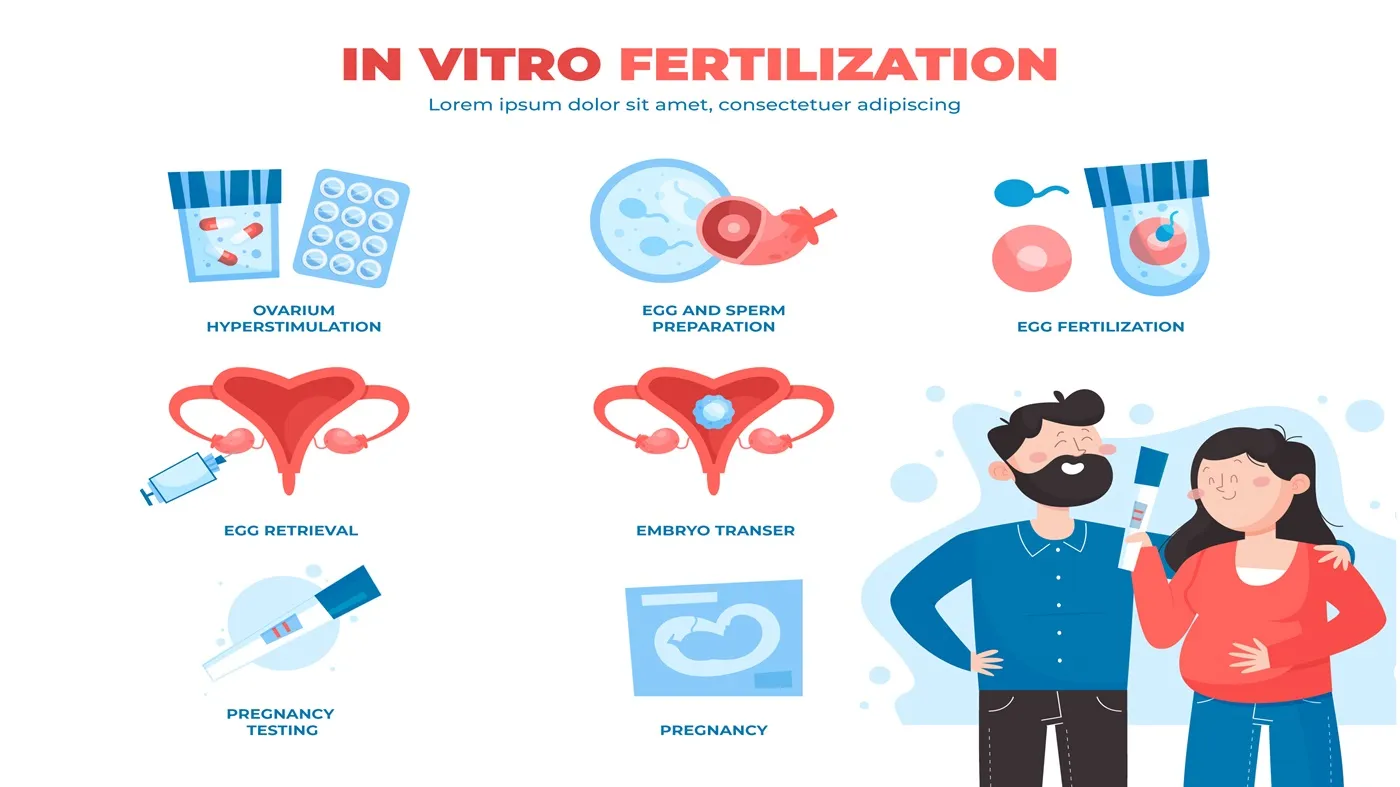
Yes, sperm quality can significantly affect the success of in vitro fertilization (IVF). IVF involves the fertilization of an egg with sperm outside the body in a laboratory setting. The quality of both the egg and the sperm plays a crucial role in the success of the procedure. The quality of sperm is a critical component in the success of In Vitro Fertilization (IVF) treatments. A healthy sperm has a significant influence on the development of a viable embryo. Overall, sperm health encompasses several different aspects, including sperm count, motility, morphology, and the degree of DNA fragmentation.
Sperm Count:
According to the World Health Organization (WHO), a sperm count of at least 15 million sperm per millilitre of ejaculation is associated with a higher likelihood of natural conception. A lower sperm count may pose challenges; however, IVF procedures, especially Intracytoplasmic Sperm Injection (ICSI), can overcome this by selecting and using only the most viable sperm.
Sperm Motility:
This term describes the sperm’s ability to move efficiently. When assessing motility, several parameters are considered, such as the percentage of motile sperm in a sample, the total number of motile sperm, their speed, and their pattern of movement. Progressive motility, which is the forward movement of sperm either in a straight line or large circles, is ideal for successful fertilization. In standard conditions, having at least 32% of sperm showing progressive motility is considered normal. However, with ICSI, even if motility rates are lower, success is still possible as the procedure requires just one motile sperm to be effective.
Sperm Morphology:
The shape, size, and structure of sperm all contribute to its ability to fertilize an egg. Typically, sperm with oval heads and long tails are better equipped for swimming to and penetrating the egg. Abnormalities in morphology can interfere with these functions. Nonetheless, ICSI can bypass some morphology issues by directly injecting a single sperm into an egg.
DNA Fragmentation:
This term refers to the incidence of damaged or abnormal genetic material within the sperm. Given that the sperm contributes 23 chromosomes to the embryo, significant DNA fragmentation can lead to infertility, impede embryo development, or increase the risk of miscarriage and genetic abnormalities in offspring, even with IVF. Modern technologies, such as advanced microscopes and computer-assisted analyzers, assist in identifying sperm with extensive DNA damage.
Improving Sperm Health:
Lifestyle changes and certain interventions can help enhance sperm quality. For instance, adopting a balanced diet, engaging in regular exercise, avoiding smoking, limiting alcohol, maintaining a healthy weight, preventing sexually transmitted infections, managing stress, and avoiding certain medications can all have positive effects on sperm health. We at Ovum Fertility recommend couples planning to undergo IVF to make these lifestyle modifications to increase their chances of success.
Furthermore, supplements rich in antioxidants, such as Vitamin C, Zinc, and Coenzyme Q10, may be beneficial for sperm health. It’s crucial, however, to consult a healthcare professional before beginning any new supplement regimen. Some medical conditions, including varicocele, hormonal imbalances, and infections, can impair sperm quality and should be treated under the guidance of a healthcare provider.
In summary, while IVF provides hope for those facing fertility challenges, sperm health plays an essential role in the process. Couples should work closely with Ovum Fertility specialists, embrace a healthy lifestyle, and consider measures to improve sperm quality, thereby enhancing their probability of a positive IVF outcome. Both partners need to undergo comprehensive fertility evaluations, including semen analysis, to assess sperm quality and identify any potential factors that may affect IVF outcomes. Fertility should be seen as a shared journey, and proactive steps towards optimal sperm health can boost the chances of achieving parenthood through IVF.